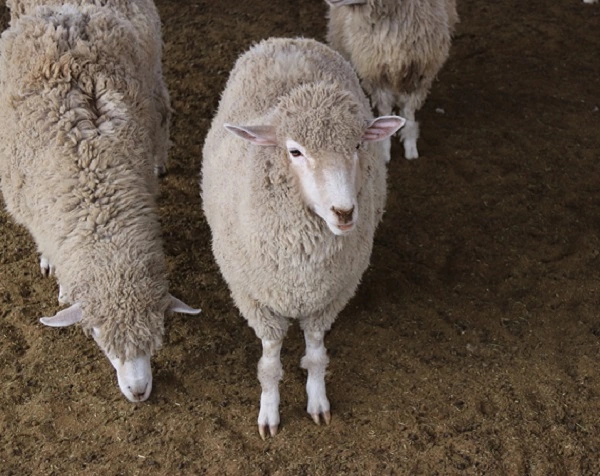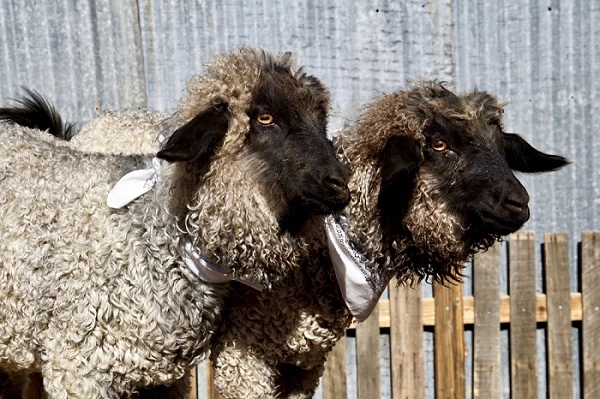Are you thinking of adding pygora goats to your herd? This guide will tell you everything you need to know about these unique animals, from their history and breed characteristics to how to care for them. Whether you’re a first-time goat owner or are just looking for more information on pygora goats, this guide has you covered. So, what are you waiting for? Read on to learn all about pygora goats!

Pygora Goat Description
Pygora goats are a relatively new breed of goat, developed in the United States in the 1980s. Pygoras are a cross between Pygmy goats and Angora goats, and they exhibit characteristics of both breeds. Pygoras are small goats, typically weighing between 50 and 75 pounds. They have dense, fine fiber which can be used for a variety of purposes, including spinning, felting, and weaving. Pygoras come in three fiber types: cashmere-like fiber, mohair-like fiber, and a combination of the two. Pygora goats are friendly and easy to handle, making them a popular choice for hobby farmers and homesteaders. Whether you’re looking for milk, meat, or fiber, Pygora goats are an excellent addition to any farm.
Pygora Goat Habitat
Pygora goats are a unique breed of goat that is known for its lustrous fiber. Pygora goats are a cross between the Pygmy goat and the Angora goat, and they are considered to be a fiber goat. Pygora goats are usually white, but they can also be black, gray, or brown. Pygora goats are found in the United States, and their fiber is used to make yarn, clothing, and other items. Pygora goats are browsers, which means that they prefer to eat leaves, twigs, and other vegetation. Pygora goats need access to fresh browse in order to maintain their health. Pygora goats also need access to clean water and shelter from the elements. Pygora goats are social animals, so they should have access to other Pygora goats or other animals. Pygora goats can live in a variety of environments, but they thrive in areas with moderate temperatures and plentiful vegetation.
Pygora Goat Diet
Pygora goats are a cross between Pygmy and Angora goats, and as such, they require a diet that reflects the needs of both breeds. Pygora goats should have access to fresh hay and pasture, as well as a small amount of grain to supplement their diet. Because they are prone to gastrointestinal issues, Pygora goats also need to consume a probiotic daily. In addition, Pygora goats need access to clean water at all times. When Pygora goats are provided with a nutritious diet, they will be healthy and happy animals that produce high-quality fiber.
Pygora Goat Size
Pygora goats are a small to medium-sized breed of domestic goat. Pygoras are a cross between the Pygmy goat and the Angora goat, and were first bred in the United States in the 1980s. Pygoras are known for their wide range of coat colors and patterns, as well as their silky, lustrous hair. Pygoras are also relatively docile and easy to handle, making them a popular choice for petting zoos and farms. Pygoras typically weigh between 30 and 50 pounds, and stand between 16 and 24 inches at the shoulder. Pygoras are hardy creatures that can thrive in a variety of climates, but they prefer warm weather and plenty of sunshine. Pygoras are relatively rare, but their popularity is slowly growing. If you’re looking for a unique and charming pet, a Pygora goat may be right for you!

Pygora Goat Lifespan
Pygora goats are a hybrid breed of goat, created by crossbreeding Pygmy goats with cashmere goats. Pygoras are relatively small goats, with adult males averaging between 75 and 150 pounds, and adult females averaging between 50 and 125 pounds. Pygoras are known for their lustrous coats, which can be either short or long, depending on the individual goat. Pygora goats typically have a lifespan of 10 to 12 years. However, some Pygoras have been known to live up to 20 years. Pygoras are generally healthy goats, but they are susceptible to the same health problems as other goat breeds, such as enterotoxemia and caprine arthritis encephalitis virus (CAEV). Pygora goats make excellent pets and can also be used for milk production, fiber production, and meat production.
Pygora Goat Behavior
Pygora goats are a small breed of goat that is known for its lustrous and soft coat of hair. Pygoras are hardy and can be found in a variety of colors, including black, white, and grey. Pygoras are intelligent and curious animals, and they are often described as being very social creatures. Pygoras are also known for their playful nature, and they are often seen chasing each other around or playing with balls and other toys. Pygoras make great pets for families with children, as they are gentle and good-natured animals. Pygoras require regular grooming to keep their coats in good condition, and they should also be given plenty of space to roam and explore.
Pygora Goat Speed
Pygora goats are a popular choice for fiber production. They are a cross between Pygmy and Angora goats, and they are known for their soft, lustrous fiber. Pygora goats are also relatively speedy creatures. They can reach speeds of up to 30 miles per hour, making them one of the fastest goat breeds in the world. Pygoras are agile and sure-footed, and they are able to navigate rough terrain with ease. Thanks to their speed and agility, Pygora goats are able to escape predators and survive in the wild. Pygora goats are a valuable addition to any farm, and their speed and agility make them a fun creature to watch.
Pygora Goat Hunting
Pygora goats are a relatively new breed, first introduced in the 1980s. Pygoras are a cross between Pygmy and Angora goats, and they are known for their long, silky hair. Pygora goats are popular among fiber artists and spinners, as their hair can be used to create a variety of different fabrics. Pygoras are also becoming increasingly popular as hunting animals. Pygora goats are well-suited to hunting due to their agility and sure-footedness. They are also very intelligent and able to remember complex routes. Pygora goats make ideal hunting companions, and they provide an excellent source of food and fiber.
Conclusion
Pygora goats are a unique breed that can provide fiber, milk, and meat. They are an interesting addition to any homestead or small farm and have the potential to become a popular livestock choice. If you’re interested in learning more about pygora goats, please check out some of the resources we’ve listed below.
Frequently Asked Question


